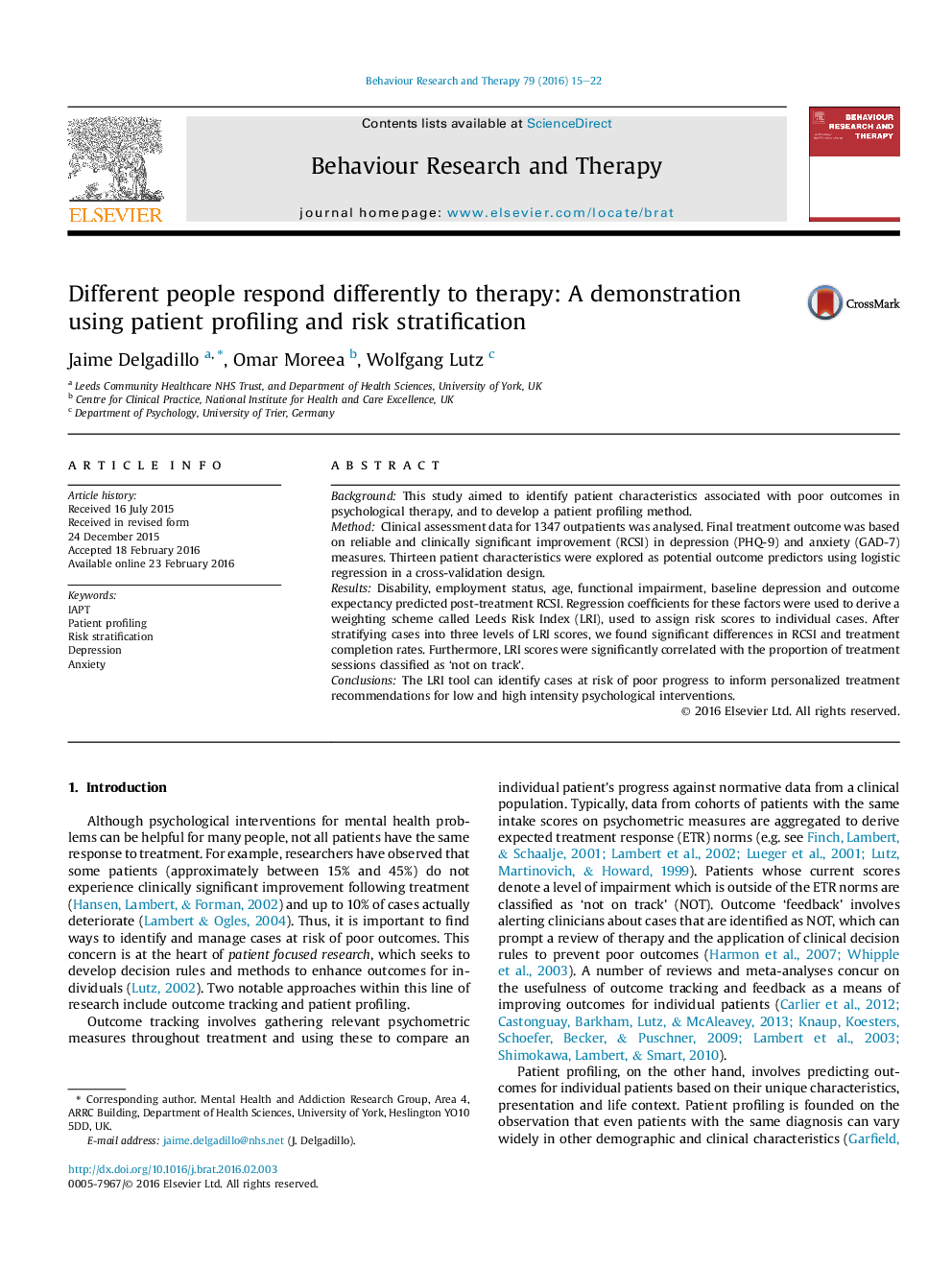| Article ID | Journal | Published Year | Pages | File Type |
|---|---|---|---|---|
| 901780 | Behaviour Research and Therapy | 2016 | 8 Pages |
•We used data from 1347 psychological therapy patients with depression and anxiety.•We identified 6 patient characteristics associated with poor treatment outcomes.•We developed a patient profiling tool called Leeds Risk Index (LRI).•Higher LRI scores are predictive of dropout and poor response to therapy.
BackgroundThis study aimed to identify patient characteristics associated with poor outcomes in psychological therapy, and to develop a patient profiling method.MethodClinical assessment data for 1347 outpatients was analysed. Final treatment outcome was based on reliable and clinically significant improvement (RCSI) in depression (PHQ-9) and anxiety (GAD-7) measures. Thirteen patient characteristics were explored as potential outcome predictors using logistic regression in a cross-validation design.ResultsDisability, employment status, age, functional impairment, baseline depression and outcome expectancy predicted post-treatment RCSI. Regression coefficients for these factors were used to derive a weighting scheme called Leeds Risk Index (LRI), used to assign risk scores to individual cases. After stratifying cases into three levels of LRI scores, we found significant differences in RCSI and treatment completion rates. Furthermore, LRI scores were significantly correlated with the proportion of treatment sessions classified as ‘not on track’.ConclusionsThe LRI tool can identify cases at risk of poor progress to inform personalized treatment recommendations for low and high intensity psychological interventions.
